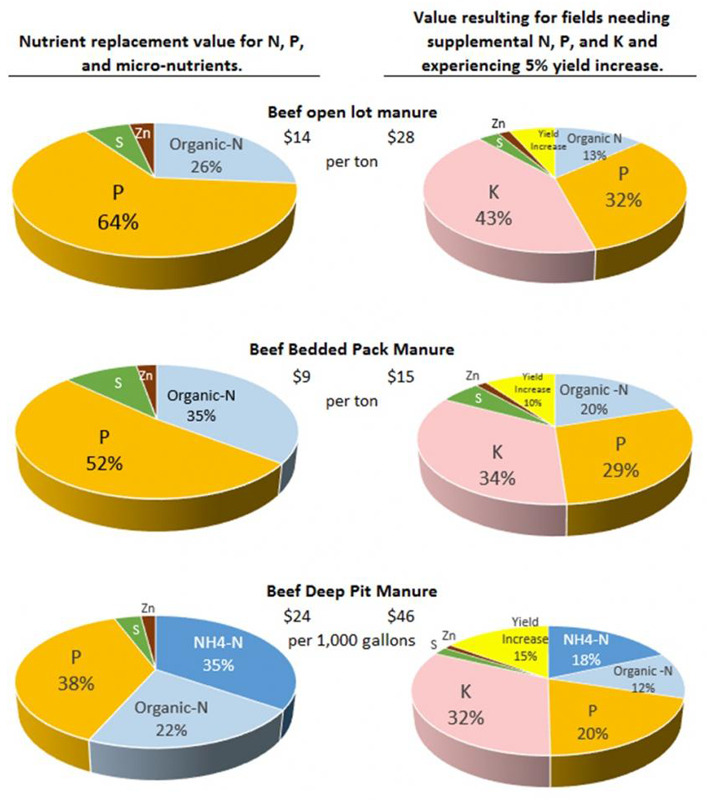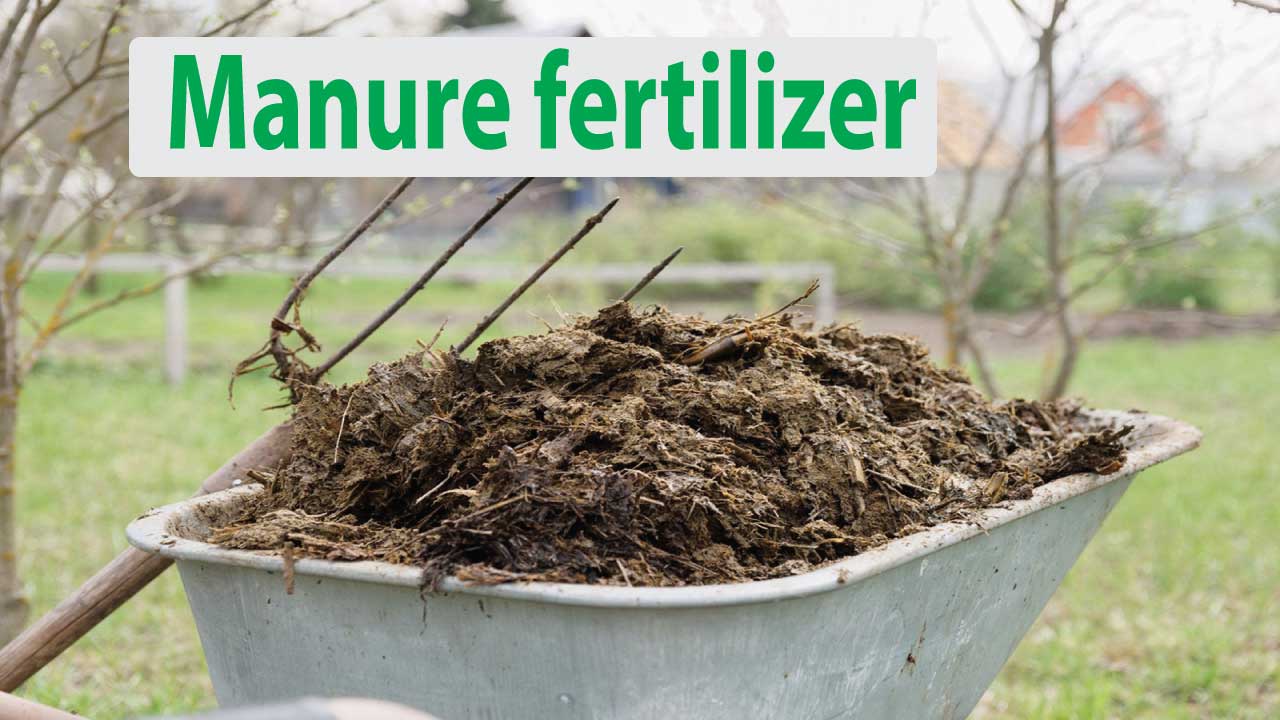Manure fertilizer has been a fundamental part of gardening and agriculture for centuries, providing a natural, organic way to enhance soil fertility and promote healthy plant growth. In this comprehensive guide, we’ll explore the different types of manure, how to use them effectively, and the benefits they bring to your garden, particularly for vegetable cultivation.
1. Understanding Manure as Fertilizer
Manure, in the context of gardening, refers to the organic matter derived mainly from animal waste that is used to enrich the soil. It’s a natural source of essential nutrients like nitrogen, phosphorus, and potassium, which are vital for plant growth. Unlike synthetic fertilizers, manure provides a slow-release supply of these nutrients, ensuring a steady and sustained feeding of your plants.
2. Different Types of Manure and Their Benefits
There are several types of manure that gardeners can use, each offering unique advantages based on its nutrient composition:
a. Chicken Manure
Chicken manure is particularly high in nitrogen, making it ideal for promoting leafy growth. However, due to its potency, it must be composted properly before being used to avoid damaging plants.
Benefits:
- Rich in nitrogen
- Improves soil structure
- Acts as a natural pest deterrent
b. Cow Manure
Cow manure is widely used in gardens due to its balanced nutrient content. It’s less potent than chicken manure, making it safer to apply without risking plant burn. It is one of the most used fertilizers in the world for Organic gardening.
“Cow dung is nature’s way of reminding us that the simplest solutions are often the most effective. As an organic fertilizer, it transforms waste into wealth, enriching the soil and nourishing plants with its natural goodness.“–Shahid
Benefits:
- Enhances soil texture
- Improves moisture retention
- Contains a balanced mix of nutrients
c. Sheep Manure
Sheep manure is rich in phosphorus, which is essential for root development and flowering. It’s a lightweight manure that’s easy to handle and apply.
Benefits:
- High phosphorus content
- Ideal for flowering plants and root crops
- Improves soil fertility
d. Horse Manure
Horse manure is known for its high organic matter content, which is excellent for improving soil structure. However, it often contains weed seeds, so composting is necessary.
Benefits:
- Increases soil organic content
- Enhances soil aeration
- Encourages beneficial microbial activity
e. Green Manure
Green manure refers to specific crops grown to be turned into the soil, enhancing fertility. Plants like clover and rye are commonly used, adding organic matter and nutrients as they decompose.
Benefits:
- Enriches soil with organic matter
- Prevents erosion
- Fixes nitrogen in the soil
3. The Role of animal waste in Soil Fertility Management
Incorporating manure into your gardening routine is an effective way to manage soil fertility. The organic matter in manure enhances soil structure, increases moisture retention, and promotes the activity of beneficial microbes. This results in healthier soil that can support robust plant growth.
Manure Nutrient Content:
To use manure effectively, it’s essential to understand its nutrient content. Conducting a nutrient analysis helps determine the levels of nitrogen, phosphorus, and potassium, ensuring that the manure is applied in the right quantities to meet your plants’ needs.
Benefits of Nutrient Analysis:
- Ensures balanced nutrient application
- Prevents over-fertilization and nutrient runoff
- Optimizes plant growth and yield
4. Advantages and Disadvantages of Using Manure
Advantages:
- Sustainable: Manure is a renewable resource that contributes to organic and sustainable gardening practices.
- Soil Improvement: It improves soil texture, enhances aeration, and increases water retention.
- Rich in Nutrients: Provides a steady supply of essential nutrients for plant growth.
Disadvantages:
- Pathogen Risk: Fresh manure can contain harmful pathogens, so it must be composted before use.
- Weed Seeds: Some manures, like horse manure, may introduce weed seeds to the garden.
- Odor: Manure can be smelly, especially if not composted properly.
5. Is Manure the Best Fertilizer?
While manure is an excellent organic fertilizer, whether it’s the best choice depends on your specific gardening needs. Manure is particularly beneficial for organic gardening due to its natural composition and long-term soil health benefits. However, for immediate nutrient needs, synthetic fertilizers may sometimes be more effective.
6. The Benefits of Using Manure in Your Garden
Manure provides numerous benefits that can significantly enhance your garden’s productivity:
- Improves Soil Health: By adding organic matter, manure improves soil structure and fertility.
- Supports Sustainable Practices: Manure is an eco-friendly option that recycles waste into valuable nutrients.
- Enhances Plant Growth: The slow release of nutrients ensures a steady supply to your plants, leading to healthier growth.
7. Do You Need Additional Fertilizer if You Use Manure?
Manure provides a broad spectrum of nutrients, but it may not supply everything your plants need. Depending on your soil’s nutrient profile, you might need to supplement manure with other fertilizers, especially for specific crops or if you’re aiming for high yields.
8. The Value of Manure in Gardening
The long-term benefits of manure lie in its ability to enhance soil health and fertility. By improving soil structure and promoting microbial activity, manure helps create an environment where plants can thrive, making it a valuable resource for gardeners.
9. How to Compost Manure for Garden Use
Composting manure is a crucial step in making it safe and effective for your garden. Composting stabilizes the nutrients and reduces the risk of pathogens.
Composting Steps:
- Collect: Gather manure along with bedding materials like straw or wood shavings.
- Aerate: Turn the compost regularly to ensure proper oxygen supply.
- Moisture: Keep the compost moist but not waterlogged.
- Cure: Allow the compost to mature for several months before applying it to the garden.
10. Using Manure ferrtilizer in Vegetable Gardens
Manure is particularly beneficial in vegetable gardens, where nutrient-rich soil is essential for productive crops. Always compost manure before use and apply it in moderation to avoid over-fertilizing.
Best Practices:
- Composting: Ensures safety and nutrient stability.
- Application Timing: Apply manure in the off-season to allow it to break down.
- Moderation: Use the right amount to prevent nutrient imbalances.
11. Understanding the Nutrient Content of Manure
Knowing the nutrient content of manure helps you apply it more effectively. Conducting a manure nutrient analysis can guide you in applying the right amounts to meet your garden’s needs without overdoing it.
Benefits:
- Optimized Fertilization: Ensures your plants get the nutrients they need.
- Environmental Protection: Prevents excess nutrient runoff.
- Cost Efficiency: Reduces the need for additional fertilizers.
12. Balancing the Use of Manure in Gardening
While manure offers numerous benefits, it’s important to use it wisely. Composting, proper application, and understanding its nutrient content are key to reaping its benefits without encountering its drawbacks.
By integrating manure into your gardening practices, you can enjoy a more sustainable and productive garden, whether you’re growing vegetables, flowers, or other plants.

Cow dung alternatives
1. Compost
- Description: Compost is made from decomposed organic matter like kitchen scraps, leaves, and yard waste.
- Benefits: Improves soil structure, adds nutrients, increases moisture retention, and supports beneficial microorganisms.
2. Green Manure
- Description: Green manure involves growing plants specifically to be turned into the soil to add nutrients and organic matter. Common green manure crops include clover, rye, and alfalfa.
- Benefits: Enriches soil, prevents erosion, and improves soil fertility.
3. Worm Castings
- Description: Worm castings, also known as vermicompost, are the nutrient-rich excrement of earthworms.
- Benefits: Enhances soil structure, increases nutrient availability, and promotes healthy root development.
4. Bone Meal
- Description: Bone meal is a powder made from ground animal bones, rich in phosphorus and calcium.
- Benefits: Encourages strong root development and is particularly beneficial for flowering plants and vegetables.
5. Blood Meal
- Description: Blood meal is a nitrogen-rich fertilizer made from dried animal blood.
- Benefits: Promotes lush, green foliage and is a quick-acting source of nitrogen.
6. Fish Emulsion
- Description: Fish emulsion is a liquid fertilizer made from decomposed fish.
- Benefits: Provides a balanced mix of nutrients, enhances soil health, and can be used as a foliar spray.
7. Seaweed Fertilizer
- Description: Seaweed fertilizer is derived from kelp or other seaweeds and is available in both liquid and powdered forms.
- Benefits: Rich in trace minerals, promotes plant growth, and enhances disease resistance.
8. Rock Phosphate
- Description: Rock phosphate is a mineral fertilizer that provides a slow-release source of phosphorus.
- Benefits: Supports root development and flowering, particularly in soils deficient in phosphorus.
9. Wood Ash
- Description: Wood ash is a byproduct of burning wood, rich in potassium and calcium.
- Benefits: Increases soil pH (useful in acidic soils) and adds potassium and trace minerals.
10. Leaf Mold
- Description: Leaf mold is made from decomposed leaves and is an excellent soil conditioner.
- Benefits: Improves soil structure, enhances moisture retention, and increases microbial activity.
Each of these alternatives can be used alone or in combination with other fertilizers to meet the specific needs of your garden. The choice of which to use depends on your soil’s current condition, the plants you’re growing, and your overall gardening goals.
Do I need to add any fungicide to animal waste?
Adding fungicide to manure fertilizer is generally not necessary before use. However, here are some considerations to keep in mind:
1. Composting Manure
- Pathogen Control: Proper composting of manure helps eliminate pathogens and reduce the risk of fungal diseases. Composting at high temperatures (above 130°F or 55°C) kills most pathogens, including harmful fungi.
- Process: Make sure to compost the manure thoroughly. The composting process should be monitored to ensure it reaches the necessary temperatures and conditions to kill pathogens.
2. Fresh Manure
- Risks: Fresh manure can carry pathogens, including fungi, which might pose a risk to plants and soil health. Therefore, it’s important to let manure age or compost it before use.
- Application: If using fresh manure, ensure it is well-rotted or composted before application to minimize risks.
3. Manure-Based Fungicides
- Specific Needs: In some cases, if you are dealing with a known fungal problem in your garden and manure has been identified as a potential source, you might consider using fungicides. However, this is usually not required for general use.
- Consultation: If unsure, consult with a local agricultural extension service or gardening expert for advice tailored to your specific situation.
4. Alternative Approaches
- Beneficial Microorganisms: Introducing beneficial microbes or using biofungicides can help improve soil health and suppress harmful fungi naturally.
- Proper Management: Good garden management practices, such as proper watering, avoiding over-fertilization, and maintaining healthy soil, can reduce the need for additional treatments.
In summary, while adding fungicide to manure fertilizer is typically not necessary if proper composting procedures are followed, it’s important to ensure manure is well-composted to prevent pathogen-related issues.
